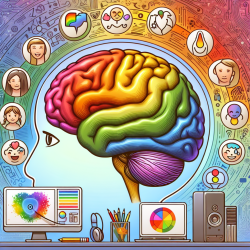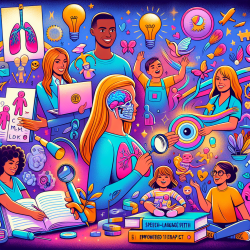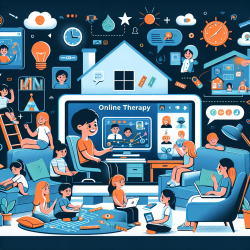Introduction
As a Special Education Director, understanding the nuances of mental health challenges such as depression is crucial, particularly in the context of media usage. The research article "The relationship between self-report of depression and media usage" provides valuable insights into how media consumption correlates with self-reported depression (SRD). This blog aims to help practitioners enhance their skills by implementing the research outcomes and encouraging further investigation into this critical area.
Key Findings from the Research
The study highlights a significant correlation between increased media usage and higher rates of SRD. It was found that individuals who consume more media, especially television and internet, are more likely to report symptoms of depression. Interestingly, the study also revealed that those who have faced economic or physical setbacks are more susceptible to depression, even without excessive media use. However, high media consumers within this group were even more prone to depression, suggesting that media usage may exacerbate existing mental health issues.
Implications for Practitioners
For practitioners working with students and families, these findings underscore the importance of monitoring media usage as part of a comprehensive mental health assessment. Here are some strategies to consider:
- Media Usage Assessment: Incorporate questions about media consumption habits into initial assessments to identify potential risk factors for depression.
- Holistic Approach: Consider the broader context of a student's life, including economic and physical challenges, when evaluating their mental health.
- Educate Families: Provide resources and workshops for parents to help them understand the impact of media on mental health and encourage balanced media consumption.
- Collaborate with Educators: Work closely with teachers to integrate media literacy into the curriculum, fostering critical thinking about media content and its effects.
Encouraging Further Research
While the study provides a comprehensive analysis, it also opens avenues for further research. Practitioners are encouraged to explore the following areas:
- Longitudinal Studies: Conduct long-term studies to better understand the causal relationship between media usage and depression.
- Demographic Variations: Investigate how different demographic factors, such as age, gender, and socio-economic status, influence the relationship between media usage and depression.
- Intervention Strategies: Develop and test intervention strategies that can mitigate the negative impact of media on mental health.
Conclusion
By integrating the findings from this research into practice, practitioners can better support students and families in navigating the complex relationship between media usage and mental health. Continuous learning and research are essential to staying informed and providing effective interventions.
To read the original research paper, please follow this link: The relationship between self-report of depression and media usage.










